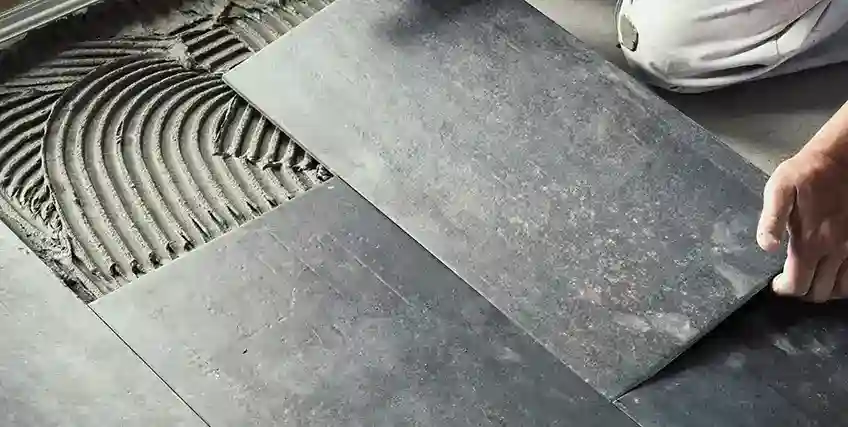Top Loans to Expand or Upgrade Your Flooring Installation Company
November 26, 2025 | Last Updated on: November 26, 2025

Small business owners in the U.S. owning a flooring installation company have to manage every detail, every deadline, and every expectation with care. They often struggle to balance tight project timelines, equipment costs, and the pressure of doing clean work every single time.
According to the U.S. Chamber of Commerce, 58% of small businesses cite inflation as their top concern. If you’ve ever had to pause a project because of cash flow, you’re not alone. To launch or expand a flooring installation company, it takes a serious investment. From modern tools to trucks to running payroll, this business requires financing options for its growth.
Let’s dive into various loan types to run a flooring installation company in the United States.
What are Flooring Installation Companies
To run a flooring installation company, it’s all about trust. You walk into someone’s home or their future office and turn a bare surface into something durable, beautiful, and functional. This means installing hardwood flooring in a vintage brownstone, laying down vinyl plank in a new office, or replacing old flooring in a family’s living room.
These companies typically work with a range of materials like laminate flooring, carpet installation, tile flooring, and even specialty options like engineered hardwood. Also, they offer various prep work such as subfloor leveling, removal, and floor refinishing. Moreover, in-home consultation is offered so that clients feel confident about their choices.
With these many moving parts like staff, materials, logistics, and customer experience, business owners need capital. Therefore, to keep things running smoothly, financing for flooring installation companies plays an important role.
Why Flooring Installation Companies Need Flooring Loans
The flooring business industry demands upfront investment. You need to pay for flooring products, labor, and equipment, long before you see final payment. Also, during busy seasons, this gap can widen fast. Not only this but making payroll before a client settles, is another important thing to worry about.
In this industry, the more the growth, the more it adds complexities. A new showroom, a better truck, or training your crew in wood floor installation, all require money. Even improving clean-up procedures or offering faster turnaround time requires smart planning.
Here’s how flooring loans can help:
- To buy or lease updated tools and vehicles.
- To expand into new locations or add more service lines.
- To purchase flooring materials in bulk at discounted rates.
- To hire and train skilled flooring contractors for improved workmanship.
- To upgrade flooring installation services for dining rooms, offices, or commercial buildings.
- To launch marketing campaigns or update your website.
Types of Loans for Flooring Installation Companies
It is important to understand that different types of loan options serve different business needs. As someone who’s handled both quick installs and full-scale commercial flooring, you know how different jobs can be.
Financing for businesses is no different. Here are some flooring loan options that business owners can consider.
Term Loans
Term loans are one of the most common financing solutions available to small business owners. These loans offer a lump sum of money that can be repaid over a fixed term, usually at a fixed interest rate. Here, repayment schedules are predictable, which helps business owners plan and manage monthly expenses without any surprises.
Term loans can be used by flooring companies to fund long-term investments. These can be opening a second showroom, hiring a new project manager, or launching a home improvement marketing campaign. The best part is that the stability of term loans makes them ideal for big-picture business growth.
Business Line of Credit
A business line of credit is a revolving credit option that gives you access to a set amount of funds when needed. You can draw from it as needed and pay interest only on the amount you actually used. This loan option works like a credit card and not a traditional loan, offering flexibility in timing and repayment.
Flooring installation companies can use a business line of credit to navigate seasonal slowdowns or irregular payments from clients. This loan option allows you to restock flooring materials, handle payroll during lean months, or manage emergency expenses without overextending. In short, it offers a financial cushion, without locking you into a long-term commitment.
Equipment Financing
Equipment financing solution is designed specifically to help you purchase tools, machinery, or vehicles. The loan amount is tied to the equipment’s value, and the asset itself serves as collateral. Therefore, this financing option comes with no risk to the lenders.
Flooring installation companies can use equipment financing to invest in machines like edge sanders, tile cutters, polishers, or even vans for in-home service crews. Buying new tools means higher-quality output and more efficient job turnaround for business owners.
SBA Loans
SBA loans are backed by the U.S. Small Business Administration and offer capital with lower interest rates and longer repayment terms. These loans are ideal for business owners who have a solid business plan and decent credit history.
Flooring installation companies can use SBA 7(a) loans or microloans to hire skilled flooring contractors, expand service areas, or pay for staff training on new flooring products or materials. The longer repayment period of SBA loans makes it easier for business owners to take calculated risks for long-term growth.
Invoice Financing
The invoice financing option lets you borrow money against unpaid invoices. This option helps you in freeing up cash without waiting 30 to 60 days for clients to pay. Here, lenders advance a portion of your outstanding invoices and collect repayment when your client pays.
In flooring businesses, this loan option is especially useful during busy seasons when you’ve completed large commercial projects but haven’t been paid yet. Additionally, invoice financing also helps maintain payroll and manage material purchases without pause.
Factors to Look for Before Seeking Loans for Flooring Installation Companies
Every smart flooring installation process starts with preparation. Hence, the same goes for financing options. You should think of this step as your blueprint, one that lays the foundation for smooth execution.
Here are some important factors to assess your business needs when choosing the right loan option.
Credit Score
Many lenders check your personal and business credit score. If you’ve a credit score of 680 or above, it’s great. If not, you might qualify through lenders focused on businesses for flooring installation with financing, though terms may be stricter.
Interest Rates and Terms
You wouldn’t choose flooring based only on the color. Similarly, don’t choose a loan based only on the monthly payment. Also, look at APR, fees, and repayment flexibility.
Collateral Requirements
Some loans need collateral like vehicles, tools, or your shop’s inventory. SBA loans might also ask for personal guarantees. Know what’s on the line.
Speed of Funding
When a new client calls for a rush hardwood flooring installation, you can’t afford a two-week wait. Some lenders offer quick approvals.
Lender Experience
Choose lenders who’ve worked with flooring company or home improvement businesses before. They’ll understand things like project-based payments, seasonal surges, and your specific flooring needs.
Conclusion
Running a flooring installation company is demanding, but rewarding. Whether you’re installing vinyl flooring in a rental or offering high-quality custom laminate flooring in a dream home, you’re shaping someone’s space.
But no business grows without tools, training, or the right people, and those all cost money. A smart, affordable flooring loan can help bridge the gap between where you are and where you want to be.
Don’t be afraid to invest in your future. Whether it’s opening a showroom, hiring your first full-time team, or offering in-home consultation to win more jobs, back your goals with the right support.
The path to growth starts with understanding your options. Explore financing for flooring that’s built around your vision, your pace, and your priorities.
FAQs About Loans for Flooring Installation Companies
What types of loans work best for flooring installation companies?
Several loan options may suit flooring businesses, depending on their specific needs. For example, some companies benefit from term loans for major investments, while others prefer lines of credit for flexibility. It often depends on the size of your business and how steady your cash flow is.
Is equipment financing a good idea for buying tools?
Many flooring contractors explore equipment financing when buying or replacing large tools. Since the equipment itself usually secures the loan, approval could be smoother. Even so, it's smart to compare terms and see what impact it might have on your monthly cash flow.
What if my flooring company has a low credit score?
Some lenders do work with businesses that have lower credit, although terms may be less favorable. Still, other factors like your annual revenue or business history could support your application. Therefore, exploring different loan types may help you find a match for your flooring installation company.
What should I look for in a lender?
While rates and terms are important, it's often just as helpful to find a lender who understands your industry. A lender with experience in construction or flooring installation might offer more relevant advice. Beyond that, reading reviews and asking questions can give you more clarity.
Can I use more than one type of loan at a time?
It’s not uncommon for small businesses to combine funding sources, especially when their needs vary. For instance, you might use a term loan for growth and a credit line for daily operations. However, tracking repayments and understanding your full financial picture becomes even more important.




